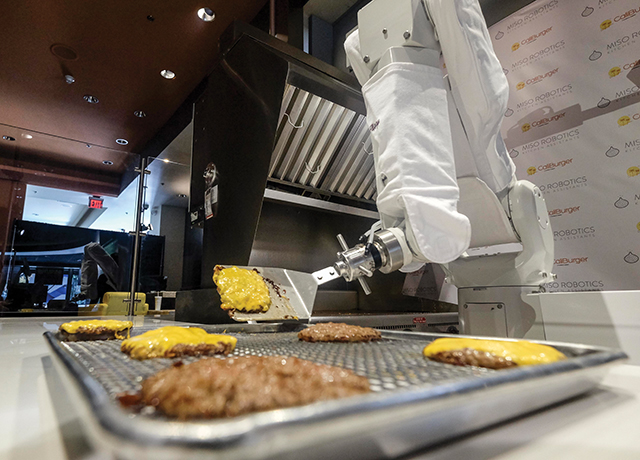
The Brookings Institution released a study recently on what tasks will be susceptible to future automation in more than 100 metropolitan areas. The bad news? 45.6 percent of tasks in the Los Angeles-Long Beach-Anaheim area are at risk for automation in all occupations among the region’s 6 million jobs, and the Riverside-San Bernardino-Ontario area fared even worse, reporting 47.6 percent of jobs are at-risk among the region’s 1.4 million jobs.
Less-educated young workers ages 16 to 24 will be the most challenged by automation, but many of them are digital natives who are ready for the challenge. Production, food service and transportation jobs are at the highest risk of being automated, but higher-wage occupations such as computer programmers and registered nurses will be affected as well. For the Los Angeles and Southern California region to prosper in the next digital wave, business leaders need to prepare now for this major disruption at work.
Over the next decade, companies will need to answer these two questions: What do computers do best? What do humans do best?
Most of tomorrow’s knowledge work will be augmented by computers, not replaced by them. In my book, “The New Leadership Literacies,” I introduce what it will take to thrive in this future world where automation abounds and cyborg work is everywhere. At Institute for the Future in Silicon Valley, we’re training people in futures thinking. Here are the literacies will need:
Learn to look backward from the future. The future will reward clarity − but punish certainty. Looking long will help differentiate between the waves of change that can be ridden and those that must be avoided. Judging too soon will be dangerous but deciding too late will be even worse.
Voluntarily engage in fear. Today’s kids will have a competitive advantage since many of them have grown up playing very sophisticated video games that teach collaborative skills and complex thinking. I believe that gaming – emotionally laden, digitally enhanced first-person stories – will evolve into the most powerful learning medium in history. The business community in Los Angeles is well positioned to benefit, due to many top game developers that call the area home, including Riot Games, Activision Blizzard, Electronic Arts and ESL Gaming.
Embrace shape-shifting organizations. New organizational forms will become possible through distributed computing networks, which have no center, grow from the edges and will be uncontrollable. Economies of scale (where bigger is almost always better) will give way to economies of organizational structure, in which you will be what you can organize. Authority will be much more distributed.
Be there even when you’re not there. Most of today’s leaders are very good in person, but they degrade when they’re not physically present. Their ability to lead will be reduced dramatically if they cannot continuously feel present even when they are not present. New digital tools will allow leaders to bridge the valley created by their absence in ways that move beyond being there. The best leaders will be close – but not too close – even when they are at a distance.
Create and sustain positive energy. Leaders will need to radiate positive energy, and that will require them to have physical, mental and spiritual – though not necessarily religious – well-being. In this highly uncertain future, hope will be the key variable – particularly for young people.
Leaders in Los Angeles will benefit from understanding their younger peers, and the good news is that many coming into professional age are optimistic. In fact, according to research conducted by Pepperdine Graziadio Business School in November 2017, millennials residing in California are confident (78 percent) in achieving their career goals, and they believe there are jobs that offer both a decent paycheck and career growth (75 percent).
California will continue to be the epicenter of the digital world. Certainly, computers will automate some jobs, but they will also create many more ways to make a living. The new leadership literacies must blend the strengths of humans and computers.
Bob Johansen is a distinguished fellow with the Institute for the Future. He will be a keynote speaker at Pepperdine Graziadio Business School’s “Industry 4.0: The Future of Humanity in the Smart Machine Age” event April 2 at The Novo.
